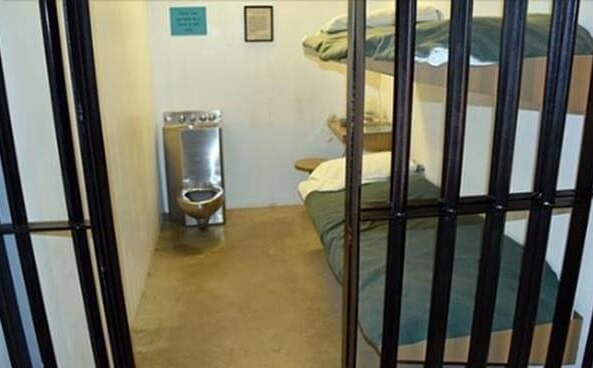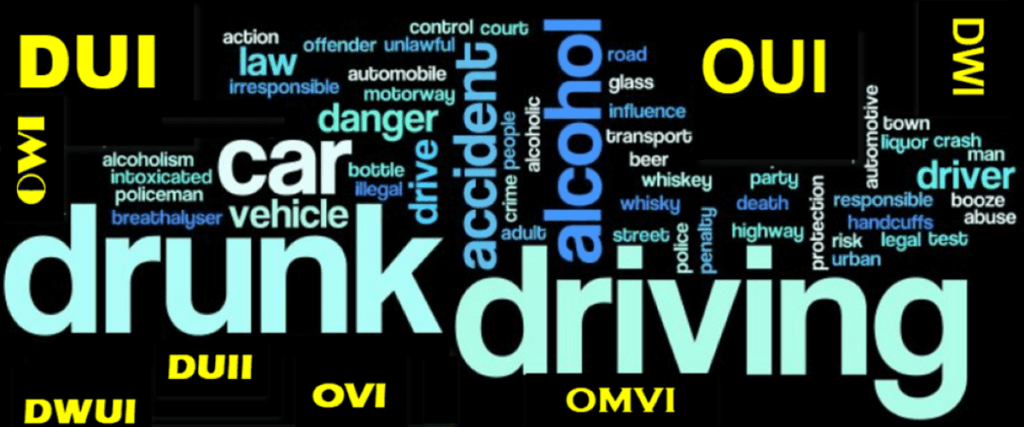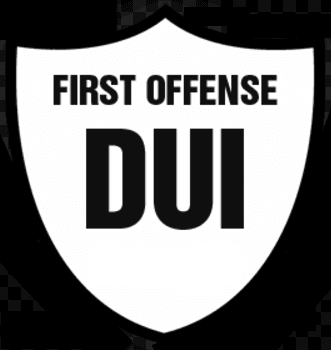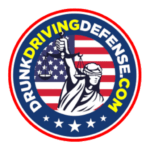Most DUIs are misdemeanors in every state since over 85% are first offenders. When certain aggravating factors exist in a DUI case (i.e., you injure or kill another person), then drunk driving can be a felony. Even a first-offense DUI-DWI can be a felony offense, with all the enhanced DUI penalties (e.g., being required to use an ignition interlock device) under state drunk driving laws. Plus, in some states (like Arizona or Indiana) state laws may call for certain motorists to face felony charges if the blood alcohol content is at an extremely high BAC level. Those felony DUI punishments range from total loss of the right to drive to state prison time.
Information from an experienced drunk driving attorney who is a DUI law specialist can help assuage your fears and trepidations about the impact of your DUI offense if convicted. Hanging in the balance can be a felony criminal record for life, related job impact, loss of family income, and your driving privileges restricted suspended, or revoked, depending on state laws on DWI-DUI.
DUI: Is It a Felony?
Is drunk driving a felony? As mentioned above, State lawmakers decide how all crimes (including driving while impaired) will be punished, DUI felony or misdemeanor. In most states, driving under the influence laws call for a 3rd or fourth DUI offense to be felony DUI charges. Some states (e.g., Michigan) have OWI laws that limit the time period, meaning offenses at any point in the driver’s lifetime. For Michigan, a 3rd DUI in your lifetime is a DUI felony.
Other states like Alabama, Georgia, California, and Florida utilize a 10-year lookback period for determining who can be indicted for felony drunk driving, simply based on repeat DUI convictions for a motorist. A smaller number of states use a 5-year or 7-year look back, and 10 years is the most common in counting the current drunk driving offense. Plus, be aware that a drunk driving charge from another state will be counted unless your DUI lawyer can convince your court that the other state’s operating under the influence (OUI) law is substantially different in its “elements” than the driver’s state laws.
Is a DUI a criminal offense? Yes, drunken driving or drugged driving is a criminal offense. The United States, though, is the world's only nation that lacks a single, uniform traffic violation for a DUI-DWI charge.
Plus, for the adult legal limit of alcohol permitted in a person’s system (ages 21 and older) and the underage “zero-tolerance” laws, no uniformity exists for a single, fixed “number.” The federal government has set a “high” number, for each (0.08 grams percent for those aged 21 and over) and 0.02 grams % for those under age 21.
Felony vs Misdemeanor: DUI Laws by State
Although the State of Wisconsin calls its first operating while intoxicated (OWI) offense a civil matter, it is punished like a crime, with the possible exception of jail time. All other states readily categorize driving under the influence (DUI) in GA and roughly 34 more states, driving while intoxicated (DWI) in TX or driving while impaired (DWI) in about 7 more states, as a misdemeanor or felony crimes, depending on the respective states’ laws.

- Is a DUI a felony?
- Is a DUI considered a felony?
- Is a D.U.I. a crime?
- Is drunk driving a felony?
- How many DUIs is a felony?
- Is drinking and driving a felony?
- Is D.W.I. a felony?
- Is DUI considered a crime?

Statistically, over 95% of all DWI-DUI arrests made in the USA are misdemeanors each year. Depending upon state laws where you are arrested, various more serious situations may arise in crashes or when child passengers are put in harm’s way when the driver is rendered less safe to drive due to consuming alcohol or drugs.
When State laws call for felony charges and the motor vehicle offense is being charged as a felony crime, the stakes for that driver become much larger. Because alcohol consumption in America is widespread, driving intoxicated is one of the most common threats to many professional and other arrestees who are in high-income positions.
By way of one quick example, most states regulate professional licensing for doctors, nurses, chiropractors, nurse anesthetists, and various state-licensed counselor positions. Conviction of a felony offense can terminate that ability for that highly paid professional.
Is a DUI a Felony or a Misdemeanor?
So, is drunk driving a felony? Is drunk driving a misdemeanor? It is possible (in some circumstances) to be found guilty of a DUI as a misdemeanor or felony offense. Generally, though, a first DUI offense is accused as a misdemeanor crime.
Usually, the availability of a "scheduled" bond amount, or any small bond amount (to get released from jail) will point to the level of severity. Bonds under $3,000 are usually for a misdemeanor crime, and higher bonds (or not being given a bond until a judge approves it) could signal a felony prosecution.
However, if someone is injured or killed by a DUI driver, it will likely be accused as a felony, even if it is the first offense. Prior DUI convictions can also raise the charge to a felony. Only Maryland, New Jersey, and the District of Columbia lack a felony DWI law for repeat offenders.
In some states (e.g., SC, MI), a DUI is a felony for a third or subsequent conviction, or if the driver had a high BAC or was driving with children. About 20 other states (including GA) cling to the 4th DUI-DWI being a felony.
Three states have enacted 2 nd offense felony laws but have set up special “timing” circumstances for triggering felony prosecution like the prior had to be within 5 years (in Indiana) or 10 years of the first DWI-OWI (for New York or Oklahoma). A fourth state, Minnesota, has a special set of factors that might allow a 2 nd DWI defendant to be prosecuted as a felony offender.
What’s the Difference Between a Misdemeanor and Felony DUI?
The consequences of getting convicted for driving and being under the influence can be serious. In states like Maine (e.g., 0.150 gr. % or higher), New Jersey, South Carolina e.g., 0.16 grams % or higher), Michigan (0.170 grams percent or higher) and Arizona, high BAC levels can bring mandatory jail sentences, even on a first-lifetime offense.

However, felony DUI convictions typically call for a year or more in prison, plus the requirement for substantial fines and longer driver’s license suspension or revocation periods.
In some states, any felony conviction (like a felony DUI-OWI conviction) takes away voting rights or can disqualify a person from holding public office. In addition, many religious organizations that allow parents to volunteer for duty (e.g., a Sunday school teacher) are often subjected to background checks, and a convicted felon (or anyone with a criminal record) will not be allowed to volunteer.
Lookback Periods
Also, when state laws criminalizing driving impaired were originally enacted, most had a “lookback” or “washout” period of 5, 7, ten years, or 15 years. This meant that repeat offenders who were convicted but got past the state’s lookback period were then considered first offenders again and would no longer face a felony DWI-OUI crime, despite multiple prior similar crimes.
Today, the national trend is to make drunk driving convictions “lifetime” look-back periods. In addition, due to the urging of N.H.T.S.A., even a first offender in 2023 who gets convicted is likely to be required to use ignition interlocks on any vehicles driven by that 1st offender. The prevalence of states mandating the use of an ignition interlock device has occurred within the last two decades.
Felony DUI Laws – What Makes a DUI a Felony?

All states in America, and the District of Columbia, enact their own DWI-DUI misdemeanor or felony laws. Over the decades, many states “copied” statutes of their neighbors, but differences show up, such as New Jersey not making ANY DWI cases felonies, and limiting jail time to 6 months, in order to deny a person committing DUI felony charges the right to have a jury trial. So, NJ statistics show that the Garden State regularly convicts and puts a higher percentage of their DWI offenders in jail than any other state, by only allowing bench trials (only a judge and no jury).
Other nations have ONE federal law on drunken driving, and one set of rules for all drivers charged in that country. In the United States, the acronym for intoxicated or impaired driving is not universal. Instead of DUI or DWI being the acceptable acronym for the intoxicated driving crime in the USA, these additional abbreviations exist: OWI, OUI, DUII, DWUI, OMVI, DWAI, OVI and many other acronyms for driving drunk. See my link to Six Ways a DUI can be a Felony.
Plus, in a few states, their state Legislatures have broadened the use of felony punishment to incidents in which an arrested DUI suspect REFUSES to submit to post-arrest forensic tests under that state’s implied consent laws (also called informed consent, in some jurisdictions). So, a driver in North Dakota could have 2 DWI convictions and 2 refusals to blow into an Intoxilyzer (regardless of whether later convicted of a drunk driving felony) and be facing a felony offense carrying significant jail time at a ND state prison. In states like Louisiana, a 30-year prison sentence awaits you on a felony DWI-DUI, with no chance of early parole.
Common Factors That Trigger DUI Misdemeanor or Felony Charges
A DUI offense can be enhanced to a drunk driving felony based on other factors. Just to outline those, here is a comprehensive list of typical enhancement issues for evaluating the question: “Is DUI a felony” in your state:
- Prior conviction(s). A criminal record from any state for DUI charges can be used as a prior offense.
- Children in the vehicle as passengers, which is commonly known as child endangerment DUI. In Georgia, one driving incident can create four DUIs by the driver being convicted when three children were passengers in the vehicle. Plus, in GA, all license suspension penalties and jail sentences for the four DUIs are stacked end-to-end.
- Did a motor vehicle collision with another vehicle, pedestrian, or object (e.g., telephone pole) injure or kill anyone (directly or due to putting others at risk of this harm)? Death or serious injury to a person or even to an unborn fetus is criminalized with felony DUI punishment in most states.
When Is a DUI a Felony in Your State?

Driving impaired by any substance taken into your body by any means, including alcohol and marijuana, can lead to a driving under the influence arrest. Absent a DUI accident involving serious bodily injury or death to another, virtually all states call for misdemeanor DUI-DWI punishment. The circumstances and specifics of the drunk driving charge can vary somewhat in the various laws of 51 jurisdictions.
DUI Child Endangerment: Children in the Vehicle
All but a small handful of states have drunk driving laws (usually called “child endangerment DUI”) that are in place to deter motor vehicle operators from driving with a child or children in the vehicle. In a few states, the 1st offense DUI driver with one child as his or her passenger escalates the case to a felony. Other states, like for DUI Georgia, count each child passenger as a NEW and separate OMVI charge so that three children under age 14 as passengers create the potential for 4 DUIs in one driving episode. So, the driver would have a 1st, 2nd, 3rd, and 4th DUI in one case, with all driver’s license suspensions and jail time potentially being stacked, end to end.
Serious Bodily Injury Due to a DUI-DWI
Almost every state has laws that distinguish DUI misdemeanor or felony when an accident with another vehicle or pedestrian by an intoxicated driver is accused. OVI felonies can be for a DUI first offense or any other repeat offender. Laws on DUI usually say that scarring, burns, sutures (stitches), broken bones, traumatic brain injury, or loss of use of an appendage (finger) or limb, would qualify as a DUI-DWI felony.
Different states define what types of serious bodily injuries will be deemed “serious,” but common categories are broken bones, scarring from burns of other causes, organic brain injury, loss of sight in one or both eyes, sutures (stitches from being sewn up), or loss of use of an arm, leg, toe, finger or other appendages.
So, if such injuries occurred to a pedestrian, a passenger in the accused driver’s vehicle, or to any other operator of any vehicle or passenger of any type of vehicle (bicycle, motorcycle, scooter, skateboard), the accused driver can expect to be charged with a DUI felony if his or her impaired driving caused bodily injuries or one or more deaths.
Death to Another Person From Driving Intoxicated or Drugged
When a drunk driver or drugged driver has caused the death of another person, it’s almost always prosecuted as a felony. These cases are named differently in various states but are commonly called homicide by vehicle (vehicular homicide), vehicular manslaughter, or even for second-degree murder in California, North Carolina, or Alabama.
More DUI Criminal Offense Resources
We have more information about DUI criminal offenses. Learn more by reading some of our in-depth articles below:
Find The Top-Rated DUI Lawyers Near You
We have listings for the top DUI lawyers in all 50 states and the District of Columbia. Find the best DUI lawyer for you by clicking on your state here.





